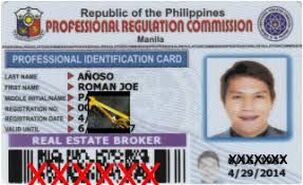Forest and Structural Fires Hits Baguio - CordilleraForest fires often occur in vast vegetation, which makes it difficult to control and extinguish. It usually starts due to the surface or ground's heat and combustion, resulting in uncontrollable fire. These fires may begin from natural and human-induced causes, like lightning, electric sparks, or cigarettes. Recently, there have been surging forest and structural fires in Baguio and other parts of the Cordillera region. These fire incidents led the Cordillera Regional Disaster Risk Reduction and Management Council (CRDRRMC) to call for community unity in implementing measures to help prevent forest fires.
According to Albert A. Mongol, the Office of Civil Defense regional director and CRDRRMC chairperson, forest lands are significant for the community and future generations. Hence, unified, proactive, and community-based measures are necessary to fight forest fires throughout the Cordillera region. The organization states that the concerned stakeholders in the community should collaborate to prevent fire incidents to ease the needed efforts for the ordinary members of society. Mongol also stressed that local support is vital in empowering and educating communities to counteract incidents of forest fires that started surging. As per the Department of Environment and Natural Resources (DENR) incident report for January 2024, about 680.07 hectares were affected by forest fire incidents in different areas in Cordillera, including 65.35 hectares of forest plantation. In two months of 2024, the Cordillera Administrative Region recorded 41 forest fires and 14 structural fire incidents. These incidents alarmed the authorities, including the Bureau of Fire Protection (BFP), Police Regional Office-Cordillera (PROCOR), local government units, and health officials, promoting intensified public awareness and preparedness within the community. Based on the data given by PROCOR, there were fire incidents throughout the region. From January 1 to February 27, Baguio recorded 16 forest fire incidents and 13 in Benguet. Mountain Province also had 11 forest fire incidents, while Apayao recorded 1. Aside from that, structural fires occurred in various areas, including Abra, Baguio, Benguet, Ifugao, and Mountain Province. However, Benguet recorded the highest fire incidents, damaging 623.73 hectares of land. Meanwhile, the damages in Abra reached 49.44 hectares and 6.9 hectares in Mountain Province. That’s why BFP Cordillera strengthened fire prevention and control measures. The Philippine Air Force (AFP) also lend a helping hand to the municipalities of Tuba and Baguio City by dispatching a Huey helicopter to extinguish the forest fire at Mount Sto. Tomas. In February, Mount Sto. Tomas was hit twice by forest fires. Major forest fires also transpired in Camp 6 and fan out to the Philippine Military Academy forest reservation, destroying pine forests of about 25 hectares. In addition, Baguio did not experience significant rainfall in a month. Strong winds also caused the fire to spread faster, while the ashes covered the city's central business district. Therefore, the CRDRRMC issued Memorandum No. 18 series of 2024, instructing members of DRRM councils and all concerned agencies to administer and impose forest fire management measures. In the said memorandum, CRDRRMC proclaims that all forests susceptible to natural or human-induced fire causes should undergo proper evaluation, inspection, and surveillance. The memorandum also states that concerned stakeholders should ensure the implementation of mitigation and interventions to prevent fire incidents. Furthermore, CRDRRMC reiterates the strict implementation of Republic Act No. 9003, titled the "Ecological Solid Waste Management Act of 2000." This act prohibits burning trash in the open. Establishments should also install fire breaks, lanes, and other similar features that help prevent fire.
0 Comments
Reasons to Invest in the Philippine Real Estate MarketAccording to statistics, the real estate market in the Philippines will hit US$6.06 in 2024. Meanwhile, the annual growth rate will reach 2% from 2024 to 2028. However, although investing in real estate is profitable and offers favorable opportunities, it's vital to understand the market before considering buying a piece of land, house-and-lot, or condo.
So, the question is, why buy a property in the Philippines? To find out, keep reading as we’ve listed down the reasons to invest in the Philippine real estate market. 7 Reasons to Invest in the Philippine Real Estate Market 1. Affordability One of the top reasons to invest in the Philippine real estate market is the affordability of properties. Contrary to other markets in industrialized countries, the value of real estate properties in the Philippines is somewhat economical. Thus, many local and foreign investors are attracted to invest in the country due to the advantageous return on investment. 2. Demographic Edge Another reason to invest in Philippine real estate is demographic advantage. It's high time to invest in the market due to the country's growing young population. The majority of the population enters the workforce and simultaneously creates new households. As a result, the demand for real estate increases, specifically in residential and commercial properties. 3. Economic Growth In recent years, the Philippines has been undergoing stable economic growth. Its gross domestic product (GDP) is also developing steadily. Generally, an increase in GDP indicates that the country's middle class is growing, including their purchasing power. Hence, the country's economic growth will contribute to the rising demand for real estate properties. 4. Surging Property Values Aside from that, the value of real estate properties in the Philippines is continuously rising. During the last few years, multiple areas in the country have experienced a surge in property values. As the market value of investments appreciates, many investors who keep their properties for the long term may benefit from substantial gains. 5. Tourism Industry Known for its natural landscapes, stunning beaches, rich biodiversity, and lively culture, it’s no surprise that the Philippines has a profitable tourism industry. Apart from Filipino hospitality, the country's tourism contributes to its economy. That's why there's a high demand for hospitality-related real estate properties in the Philippines, from hotels and resorts to condos and vacation rentals. 6. Urbanization & Infrastructure Expansion In the past few years until the present, the Philippines has been experiencing impressive urbanization, and the development of infrastructures is evident in various places. From new roads, bridges, metropolitan areas, and public transportation systems, the country's rapid development helps improve the quality of life. Therefore, investing in Philippine real estate is ideal as the new investment opportunities will increase further. 7. Multiple Investment Options Most of all, the Philippine real estate market provides multiple investment options. Investors can choose from residential to commercial properties or invest in mixed-used developments and agricultural land. The diverse options offered by the country empower potential investors to customize their strategies based on their risk tolerance or preferences. Summary But similar to any other investment, there are risks in investing in the Philippine real estate market. Investors must conduct thorough research and adequate assessment. By doing so, they can make wise investment decisions by understanding the possible challenges, legal regulations, and dynamics of the Philippine real estate market. Furthermore, investors must consult with financial advisors, real estate, and legal experts who can help them navigate the intricacy of the local market, allowing them to make informed investment choices. These reasons to invest in the Philippine real estate market only serve as a guide. So, it's still best for investors to seek guidance from financial advisers and real estate professionals. Panagbenga Festival 2024 - Schedule of ActivitiesPopular to tourists for its cool temperate climate, Baguio City has plenty of things to offer, from its beautiful landscapes with lush highland forests to the freshest produce, like the sweet red strawberries. Aside from that, the Summer Capital of the Philippines is a fun and festive place to visit, especially in February, when the Baguio Flower Festival occurs. It's a colorful and vibrant festival that offers an unforgettable experience, boasting Baguio's culture, creativity, and beauty.
If you’re ready to immerse yourself in this one-of-a-kind experience, read on as we share the Baguio Flower Festival 2024 Schedule (Panagbenga)! Baguio Flower Festival 2024 (Panagbenga) Also known as the Panagbenga Festival, the Baguio Flower Festival is an official event that can only be experienced in Baguio City. It's an annual celebration, which takes place in the first week of February to March when the region is in full bloom of beautiful and radiant flowers. The festival also features the Cordillera region's rich cultural heritage through exciting activities. That's why the Panagbenga Festival is a must-experience in Baguio City. Theme & Highlights The theme of the Baguio Flower Festival 2024, or Panagbenga, is “Celebrating Traditions, Embracing Innovation.” Since this highly anticipated event is a crowd drawer, the City of Pines has prepared plenty of activities showcasing artistry and cultural expression. The Grand Street Dancing Parade is the main highlight of the Baguio Flower Festival 2024, reflecting the Cordilleras' cultural heritage through lively dance productions and detailed costumes. Apart from that, the main event of the Panagbenga Festival 2024 is the Grand Float Parade throughout the streets of Baguio City, featuring magnificent floats embellished with vibrant flowers. Tourists can also enjoy other activities, like exhibits, a kite flying challenge, cultural dance competitions, and the Session Road in Bloom. Schedule of Activities Here’s the schedule of activities for the Baguio Flower Festival 2024 (Panagbenga):
Summary Overall, the Baguio Flower Festival 2024 (Panagbenga) is not just a celebration of the blossoming flowers. But it's more of a demonstration of the spirit and flexibility of the Cordillerans. Additionally, the Panagbenga Festival 2024 highlights the improvements of the city, rich traditions, and lively community. Therefore, the festival is a remarkable moment to experience the natural beauty and culture of Baguio City - a celebration loaded with fun and colorful memories! Baguio City Today - Latest News & TrendsBaguio City is one of the top tourist destinations in the Philippines, known for its cool climate, luscious parks, and mountainsides filled with enormous pine trees. Dubbed the "Summer Capital of the Philippines," Baguio is popular among tourists thanks to its romantic vibe, vibrant nightlife, and many shopping options. But what's new in Baguio City?
Read on as we’ve gathered the latest news and trends in Baguio that you should know about before taking your long-awaited vacation in the City of Pines. Local Irritability Since it’s a popular tourist destination in the country, locals and foreign tourists come and go to Baguio City. During February, tourists flock to the city to enjoy and witness the charming beauty of Panagbenga or the Baguio Flower Festival. When the weather in Baguio turns chilly, the influx of tourists also rises, especially during Christmastide. While it's good for tourism, it has increased local irritability. That's why the local officials aim to address the issue. According to local officials, they are now weighing the resources tourists utilize whenever they visit Baguio to efficiently deal with the road, water, and environment. Additionally, the officials seek to address the local irritability caused by heavy crowds and road gridlocks on weekends. Although a local official advises tourists not to bring their cars to go, it's not reasonable. Thus, the planning congress has discussed establishing a new tourism code in preparation for the Panagbenga Festival, which attracts the biggest crowd in the city. The local government seeks to understand and find a solution to why the residents of Baguio began resenting tourists who have contributed to the town's economy. Hence, Baguio is currently undertaking redevelopment utilizing studies on Urban Carrying Capacity. Diarrhea Outbreak Aside from the antagonism of locals on tourism, Baguio had an outbreak of acute gastroenteritis, which was declared by Mayor Benjamin Magalong. As per the Department of Health (DOH), based on the Baguio City Health Office's preliminary findings, the surge in diarrhea cases in the city started on December 21, 2023. Nonetheless, the outbreak’s critical period is already over. Therefore, health officials shifted their focus to determining the source and cause of the diarrhea outbreak in the city. Starting last January 9, 2024, the new cases of diarrhea continued dropping. As of January 14, 2024, there were only 14 cases reported, which significantly dropped from 520 last January 8. Furthermore, most patients recovered or are almost recovering, and there's no record of fatalities. According to the tests performed by the Research Institute for Tropical Medicine (RITM), patients from 10 hospitals have tested positive for sapovirus and norovirus. More tests are also performed according to officials of the Department of Health Epidemiology Bureau and City Health Services Office (CHSO). The test conducted by the CHSO showed that some water sources tested positive for E. coli bacteria. Nonetheless, there were no bacteria found in the Baguio Water District. Meanwhile, health officials encourage everyone to perform precautionary measures, such as frequent handwashing and drinking boiled or purified water only. Digital Payment Trends Although Baguio residents were irked by the influx of tourists, the busy crowd meant more sales for local vendors. That's why some vendors introduced an innovative payment method in the Baguio City Public Market to make shopping more convenient for customers. Now, customers can pay via GCash when purchasing vegetables - a seamless, efficient, and cashless payment method for modern-day shoppers. This trend will benefit all buyers, from residents and tourists, making it easier to buy fresh produce. How to Refund Payment from Real Estate Developer for Delayed Turnover of Subdivision or Condominium ProjectAre you planning to buy your dream home in a subdivision? Or maybe you want to own a condominium unit in the city? Whether you're still thinking of buying or have already bought one, it's essential to know what measures to take in the event the seller or real estate developer fails to turn over your property as promised. Although no one wants to back out from purchasing their home, the best thing you can do is to refund all your payments if the real estate developer is delayed in completing the project based on their prescribed timeline.
But how do you refund your money from a real estate developer? To find out, read on as we share the four (4) steps on how to refund payment from a real estate developer for delayed turnover of a subdivision or condominium project. Step 1: Ask the developer for a 100% refund of payment. This process is simple. All you have to do is visit the developer's office and talk to the officer in charge. Inform them that you will cancel the purchase of the property since they're delayed in completing the project, and you'll refund all your payment. But if they don't agree to refund your payment, proceed to the next step. Step 2: Go to DHSUD. The second step is to visit the Department of Human Settlement and Urban Development (DHSUD) office. Here, you'll get a Notice for Conciliation. After obtaining the said letter, you can personally give it to the developer or let DHSUD send it. This letter invites the developer or seller of the property to visit the DHSUD office and discuss the problem. Once the developer receives the Notice for Conciliation, you can proceed to the third step. Step 3: Attend the Conciliation Conference. Through the Conciliation Conference, the officers of DHSUD, the buyer, and the developer/seller will discuss the problem face-to-face. The problem is usually resolved with the said conference. However, you should proceed to the final step in case the developer is coldhearted and does not agree to refund your payment even though they know they're delayed in delivering the project. Step 4: File a complaint at HSAC. Your last resort is to file a formal complaint at the Human Settlement Adjudication Commission (HSAC) if the developer or seller still doesn't agree to refund all your payment. This court is designed for complaints regarding problems in selling properties that involve a real estate developer. The function of HSAC is to exclusively hear and decide cases about real estate transactions and developments. Nonetheless, buyers usually don't reach this stage. Real estate developers are well aware that they don't have a chance of winning the case if the reason for the buyer's refund is due to the delayed turnover of a subdivision or condominium project. Consequently, buyers are protected by Presidential Decree (PD) No. 957, also known as the "Subdivision and Condominium Buyer's Protective Decree." The PD No. 957 safeguards buyers of condominium and subdivision projects from any fraudulent activities and misrepresentation of sellers, developers, and operators. It's a legal solution for buyers who want to refund all their payments from real estate developers for failing to deliver or complete the property as promised. With PD No 957, buyers are allowed a 100% refund of their payments, including the interest, given they can prove that the developer failed to deliver or complete the project at their prescribed timeline. Therefore, buyers should visit DHSUD to check the developer's timeline, proving they did not finish the project on time. References https://www.tiktok.com/@iam_romanjoe/video/7296087105892224262 https://lawphil.net/statutes/presdecs/pd1976/pd_957_1976.html https://cebuhousefinder.wixsite.com/cebuhousefinder/post/law-refund-when Delayed Turnover of Condo or Land Subdivision Development: Refunding Payment from Real Estate DeveloperBuying your dream home is a fulfilling achievement, especially for those who wish to live in the city or suburbs. However, real estate developers may experience problems throughout the construction process, causing delays in the project completion. If this ever happens to you, it will delay the turnover of your property for months or even years. But the question is, can you refund all your payments from a real estate developer for the delayed turnover of a condominium or subdivision lot?
To find out, read on as we answer the question, “Can you refund your money if the developer delays the turnover of a condominium or subdivision project.” We will also share legal tips to resolve this situation, so let’s get started. Can You Refund Your Money if the Developer Delays the Turnover? The answer is “yes!” You can surely refund your money if the real estate developer delays the turnover of the condominium or subdivision lot you bought from them. Regardless of the reasons, whether the developer canceled the project, did not complete it, or failed to deliver it as promised, their buyers will have a right to a 100% or full refund of all the payments they made, including its interest. However, buyers can only request a refund if the developer fails to complete or deliver the project at their promised timeline. Thus, buyers who want a refund should prove that the developer is behind their timeline to complete the project. You can check the developer's timeline in a government agency called DHSUD, which stands for Department of Human Settlements and Urban Development. This agency is where the developers submit their plans and timeline of turnover of their projects. By visiting DHSUD, buyers can get proof that the developer did not deliver their project on time, allowing them to refund all their payments. Presidential Decree (PD) No. 957 Now, let's talk about the legal grounds to refund all your payments from a real estate developer if they fail to deliver your property on the promised timeline. On July 12, 1976, the late President Ferdinand Marcos initiated the Presidential Decree (PD) No.957, also known as the "Subdivision and Condominium Buyer's Protective Decree." With this decree, buyers of subdivision developments and condominium projects can protect themselves against fraudulent acts and misrepresentations of developers, sellers, and operators. Furthermore, it's a legal remedy if the developer fails to complete the project. Under Section 23 of PD No 957: "Non-Forfeiture of Payments. No installment payment made by a buyer in a subdivision or condominium project for the lot or unit he contracted to buy shall be forfeited in favor of the owner or developer when the buyer, after due notice to the owner or developer, desists from further payment due to the failure of the owner or developer to develop the subdivision or condominium project according to the approved plans and within the time limit for complying with the same. Such buyer may, at his option, be reimbursed the total amount paid, including amortization interests but excluding delinquency interests, with interest thereon, at the legal rate." Conclusion Whether you paid in full or installments, buyers can request a refund of 100% of total payments, including the amortization interests, given they meet the decree's grounds. On the other hand, buyers cannot demand a refund just because they changed their mind. Therefore, buyers can only refund the total amount paid to a real estate developer due to their failure to complete or deliver the condominium or subdivision project based on the approved plans and prescribed timeline. In short, PD No 957 resolves the issue of delayed turnover to protect the welfare and rights of property buyers. Adverse Possession: How to Acquire a Property Without Buying Are you occupying a lot that is not yours legally or residing at a property with no one claiming ownership? Whichever the case may be, you're in the right place. If you're wondering if you can get a title for a lot you have been occupying for a long time, the answer is "yes." But how do you get a title for a property that is not yours?
How can you claim it if you don’t have any documents proving ownership? To find out, read on as we share how to acquire a property via adverse possession. What is Adverse Possession? Adverse possession refers to a legal process where a non-owner who occupies or possesses a piece of land of another person is granted a right to obtain title and ownership of the said property after residing for a certain period. Under this process, the occupant or possessor can apply for the property's title given they meet certain conditions, whether they continuously possess the property or infringe the rights of the true landowner. Despite unlawfully occupying unused or uninhabited land, adverse possession gives illegal settlers the right to acquire property without buying. Hence, it's often called squatter's rights or homesteading. Nonetheless, an occupant or disseisor must prove they meet several criteria, which may vary per state before the court allows their claim. For instance, most states require the claimant to provide a deed and proof of payment for the property’s taxes. Each state also has a different statutory period for adverse possession. For example, the state's predetermined statutory period is twenty (20) years. Adverse possession will be successful if the claimant or occupant continuously and exclusively uses or possesses the property. But the disseisor or occupant's claim under adverse possession will be invalidated if the true landowner performs or pays any maintenance on the property in the 19th year. Although this process may provide rights to non-owners, landowners can prevent adverse possession by taking necessary measures and fulfilling their obligations to their property. On the other hand, the law may favor the adverse possessor as a reward for productively using the land, given the true landowner sleeps on their rights. Therefore, you may acquire a property without buying it, given you meet the statutory requirements for adverse possession. You can even obtain legal title to claim ownership of the said property. How to Acquire Property via Adverse Possession? As stated in the Republic Act 10023, or " An Act Authorizing the Issuance of Free Patents to Residential Lands," a Filipino will obtain the right to get a title for a property that they have been occupying for a long time, given they have been staying at it for over ten (10) years. Furthermore, the property must be classified as alienable and disposable, which means it's not a protected land and not yet titled under other people’s names. This law aims to provide Filipinos with legal and titled residence. At the same time, the law punishes landowners who don’t use their property productively. But do note, acquiring a property through adverse possession can only be done once in your residence address where you've been residing for over ten (10) years. You must also comply with requirements before acquiring a property via adverse possession. Through RA 10023, you may apply for a title given the property you've occupied for more than ten (10) years meets the required land size based on the city or municipality of location. Most importantly, the property should not be needed for public use or service before the court allows your claim. Thus, you should meet and comply with the qualifications and requirements to apply for a Free Patent Title under RA 10023. 4 Steps to Transfer Lot with Tax Declaration Only Have you recently purchased a lot without a title? Or you're interested in buying a lot, but the seller only holds a Tax Declaration? Whatever the case may be, you've come to the right place. Many homebuyers or real estate investors who buy from sellers without titles often have problems transferring the property's ownership under their name. Thus, buying a lot with a title is ideal to be on the safe side. But what if the lot has no title but only a Tax Declaration? Can you transfer its ownership to your name?
Contrary to what others believe, a buyer can still transfer the lot to their name and ensure its ownership even if it doesn't have a title, given the seller has a Tax Declaration. So, if you're wondering how to transfer a property with no land title, keep reading as we share the four (4) steps to transfer a lot with Tax Declaration only. Step 1: Get the CAR from BIR. First, secure a Certificate Authorizing Registration (CAR) issued by the Bureau of Internal Revenue (BIR). This document is a requirement before performing any transfer of shares. To request this document from the BIR, you must present a legal document proving you purchased the property. Thus, prepare the Deed of Absolute Sale before visiting the BIR. The Deed of Absolute Sale is made and notarized by a lawyer and signed by two (2) witnesses. At the BIR, you should also pay the Documentary Stamp Tax (DST), equivalent to 1.5% of the selling price, zonal value, or fair market value, whichever is higher. Moreover, you should pay the Capital Gains Tax (CGT), equal to 6% of the selling price, zonal value, or fair market value, whichever is higher. Step 2: Go to the Treasurer’s Office. The second step is to visit the Treasurer's Office at the City Hall, Municipal Hall, or Capitol. When visiting the Treasurer's Office, bring the CAR you've obtained from the BIR. In addition, you should pay the Transfer Tax Fee, equal to 0.5% of the selling price, zonal value, or fair market value, whichever is higher. Step 3: Proceed to the Registry of Deeds. After paying the Transfer Tax Fee, the next step is to visit the Registry of Deeds. Here, you will submit the original requirements, such as the Deed of Absolute Sale, Tax Declaration, and other documents required for transferring property. Aside from that, you'll need a Department of Agrarian Reform (DAR) Certificate if the property you wish to transfer is agricultural land. Step 4: Visit the Assessor’s Office. Once you have submitted the documentary requirements to the Registry of Deeds, the final step is to visit the Assessor's Office. At the Assessor's Office, you can change the name of the Tax Declaration from the buyer to your name. Registering the property you purchased under your name is essential, even if it doesn't have a title yet. Doing this step can ensure the property you purchase is safe and legally registered under your name despite only having a Tax Declaration. Thus, in case problems arise in the future, you can ensure ownership of the property. But before you purchase a property, ensure it’s categorized as Alienable and Disposable. It means the property is not a protected land and not privately owned. By doing so, you can ensure that the property you’re buying can be titled someday. 5 Steps to Get a Land Title for Property with Tax Declaration OnlyThe Original Certificate of Title (OCT) proves the ownership of a land, house-and-lot, or townhouse. The same goes for the Transfer Certificate of Title and Condominium Certificate of Title. But what if the property you plan to buy has a Tax Declaration only? How do you guarantee the ownership of the property? It's also ideal to get a title to ensure buyers you're legally entitled to sell a property that only has a Tax Declaration.
Now, the question is, how do you get an Original Certificate of Title if the property only has a Tax Declaration? Keep reading as we share the five (5) steps to transfer Tax Declaration to Land Title. Step 1: Visit DENR. Whether buying or transferring a property with a Tax Declaration only, you should first visit the Department of Environment and Natural Resources (DENR). Once at the DENR, look for the Community Environment and Natural Resources Office (CENRO) or the Provincial Environment and Natural Resources Office (PENRO). Submit your requirements, such as the Tax Declaration, in any of these offices. This document is solid evidence that proves you're occupying or residing at the property you’re titling. However, there are qualifications you should meet for titling property with a Tax Declaration. For instance, you should reside at the said property for at least ten (10) years, except if you're a Filipino citizen. You can also secure the required forms from the DENR, including the Residential Free Patent Form and Affidavit of two (2) Disinterested Persons. After filling out the forms, ensure to get it notarized. In addition, get other certificates you'll need from the DENR, such as the Lot Status Certificate. This certificate determines if the property you're requesting for titling has no existing title under other people's names and technical descriptions. The DENR also issues an A&D Certificate (Alienable and Disposable), which ensures the property is not a protected land. Also, DENR will give a complete list of requirements you should secure from other government agencies. Step 2: Get the Transmittal Form/Order of Award. After submitting the documentary requirements, proceed to the next step, obtaining the Transmittal Form or Order of Award from the DENR Regional Office. The Transmittal Form contains your name and indicates an approved request. But before that, DENR will visit your property to conduct an investigation and inspection, ensuring you’re occupying the property for over ten (10) years. During the inspection, DENR will take pictures and question your neighbors. Aside from the inspection, DENR will go to the Barangay Hall to disseminate information. They will post a notice of your application regarding the titling of property to inform the entire Barangay. So, in case someone is claiming the property, they have an opportunity to tell their side. Step 3: Go to the Registry of Deeds (RD). When you visit the Registry of Deeds, bring the Transmittal Form from the DENR Regional Office. Also, don't forget the copy of your Tax Declaration. Then, they will advise you when to return to claim the property title. Step 4: Claim the Original Certificate of Title (OCT) at RD. Return to RD to claim the Original Certificate of Title (OCT). This document is the first title issued on a property. Therefore, you’re the first person to receive the title of that property. Step 5: Head to the Assessor’s Office. Once you receive the property title, proceed to the Assessor's Office to update the Tax Declaration. The Assessor's Office will update their records that the previous Tax Declaration has a title. Now, you've successfully obtained an Original Certificate of Title (OCT), proving ownership of your property. What to Do When You Lost Your Property TitleA land title is one of the most essential documents that prove property ownership. Two types of this document prove ownership: the Owner's Copy of Title and the copy of the property title kept by the Registry of Deeds. Aside from that, the Original Certificate of Title is issued to owners when the property is first registered. While the Condominium Certificate of Title is issued to owners of condo units. But what if you lose a copy of your property title? How will you prove ownership of your property?
To find out, keep reading as we share the four (4) steps to get a new property title if you lose your copy. The steps below apply to house, lot, or condo properties. Step 1: Get an Affidavit of Loss. If you already searched every corner of your house but to no avail, it's time to take legal action to avoid problems in the future. The first step is to secure an Affidavit of Loss, made by a lawyer, and must be notarized. When requesting this document, tell your lawyer how you lost your property title. There are many reasons why many property owner's titles went missing. Some owners misplaced it, while others lost their property title due to theft, fire, flood, and other similar events. Improper storage of fragile property titles can also lead to termite destruction. Whatever your case, the only way to get a new property title is via a court process. But you should obtain an Affidavit of Loss before going through the Reissuance of Title process. Step 2: Obtain a Certified True Copy of Title with lost title annotation. After obtaining an Affidavit of Loss, the next step is to get a Certified True Copy of Title with lost title annotation. To obtain this document, you should present the Affidavit of Loss made by your lawyer to the Registry of Deeds, located at the city or municipal hall. The Registry of Deeds will annotate or indicate at the back of the original title regarding the loss of your title. Step 3: Attend the court hearing. As stated earlier, the court process is the only way to secure a new property title. There are two legal remedies to get a copy of the title. The Petition for Reissuance is the solution if your property title was destroyed or damaged due to natural calamities, such as flood and fire. On the contrary, the Petition for Reissuance is the applicable solution if your property title was destroyed or lost due to other reasons. To attend a court hearing, you and your lawyer should file a petition for Reissuance or Reconstitution of Title. In addition, you'll need the Certified True Copy of the Title with an annotation of the "lost title," which you secured from the Registry of Deeds. During the court hearing, you should also prove to the judge, in good faith, that your property title is really missing. If successful, you can proceed with the 4th step. Step 4: Bring the court order to the Registry of Deeds. Finally, you can secure a new property title by presenting the court order to the Registry of Deeds. The court order is a formal document stating the judge's official judgment to grant you a new property title. After presenting the court order to the Registry of Deeds, you can obtain a new owner's duplicate copy of the property title. But do note that there are requirements you must comply with when you lose your property title. Also, you should pay the applicable fees before obtaining a new copy of your property title, which I'll discuss in my next article. Remember, replacing a lost property title as soon as possible is vital to avoid fraudulent claims and easy transfer. |
Archives
July 2024
Categories
All
|
Hi! Welcome to our website. Having an agent/broker on your real estate search is a gift because with or without them the price of the property is always the same. They give you FREE SERVICE and only pure service. On your part, everything is to gain. Claim your gift now! :)
meet your Real estate Broker Partner:
Roman Joe Anoso, RN, REB
Real estate Broker PRC license number: 19887
HLURB registration number: CAR-B-05/21-029
HLURB registration number: CAR-B-05/21-029
Roman joe Anoso is a multi-awarded real estate broker, consistent Top #1 for 8 years to date, being recognized by the following companies:
Suntrust Properties, Inc.
- Overall Nationwide Top # 1 Real estate broker year 2018:
Vista Residences, Inc.
- Overall Nationwide Top # 1 Real estate broker year 2017:
Goshen Land capital, inc.
- Overall Nationwide Top # 1 Real estate broker year 2011 to 2016:
Suntrust Properties, Inc.
- Overall Nationwide Top # 1 Real estate broker year 2018:
Vista Residences, Inc.
- Overall Nationwide Top # 1 Real estate broker year 2017:
Goshen Land capital, inc.
- Overall Nationwide Top # 1 Real estate broker year 2011 to 2016:
office address: REALS Corporation, Barangay Dontogan, Baguio city, 2600
personal: +63917-5645-863
viber/whatsapp: +63917-5645-863
add him on facebook (CLICK HERE)
office landline: 074-442-2353 (for clearer conversation)
email: [email protected]
skype: romankat2
website: www.realestatebaguio.com
personal: +63917-5645-863
viber/whatsapp: +63917-5645-863
add him on facebook (CLICK HERE)
office landline: 074-442-2353 (for clearer conversation)
email: [email protected]
skype: romankat2
website: www.realestatebaguio.com
official Real Estate Brokerage Website of REALS Corporation
for our affiliate program CLICK HERE
for our affiliate program CLICK HERE




 RSS Feed
RSS Feed




